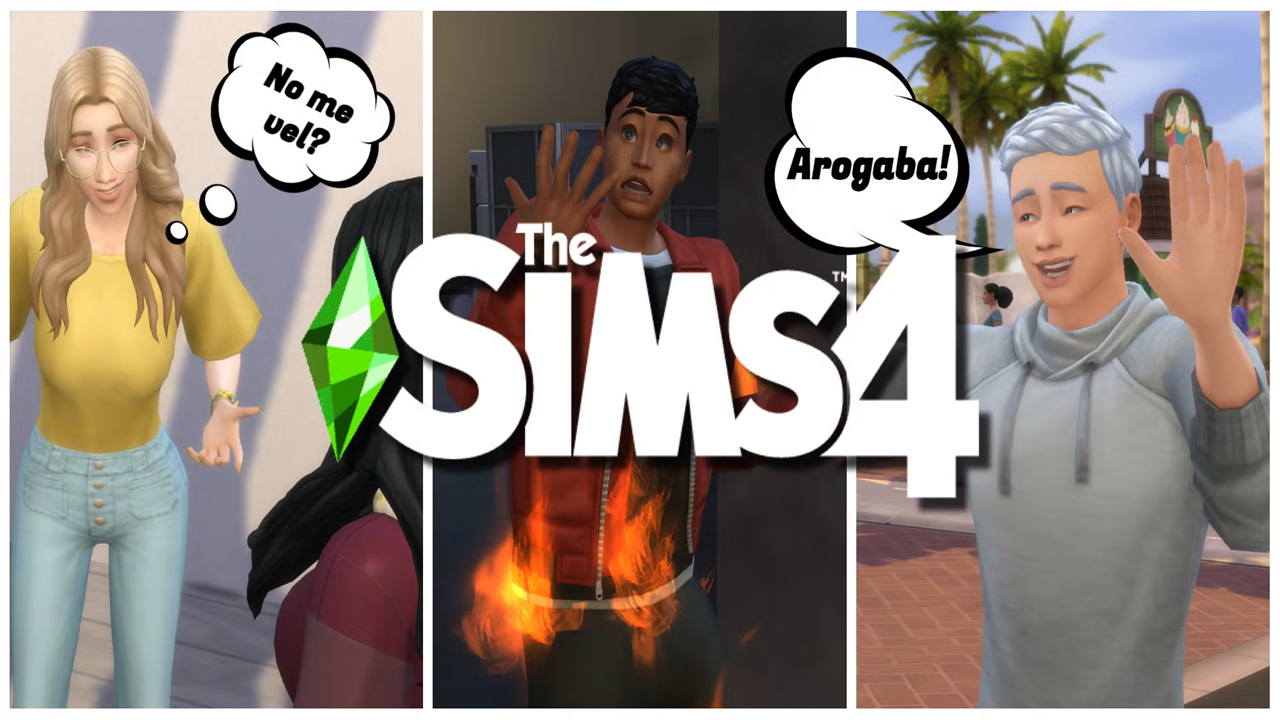
10 Popular Simlish Phrases from The Sims Every Simmer Should Know
United Gaming – Have you ever found yourself guessing the strange babble spoken by your Sims and wondered what language it might be? Some players often think it sounds like Ukrainian, Russian, or other existing languages. In reality, the Sims don’t use any real-world language. What you hear is Simlish—a completely made-up gibberish language created specifically for the game.
Simlish was developed by The Sims creator, Will Wright. His original vision was to create dialogue that felt immersive without becoming repetitive. Using a real language like English would have required massive localization costs and translations. At one point, Wright considered Navajo, a Native American language, but ultimately decided to use a nonsensical language that allowed players to interpret the emotions and context themselves.
Interestingly, Simlish didn’t debut in The Sims series itself. Instead, it first appeared in the 1996 flight simulator game SimCopter. Players flying helicopters could hear background chatter in this quirky language, which later became the foundation of the Sims’ iconic speech.
Perhaps the most recognized phrase in Simlish is “Sul Sul!” which translates loosely to “Hello.” This simple greeting is widely used by Sims when interacting socially. Even the official social media accounts for The Sims franchise often use it to connect with fans worldwide.
Another phrase you may hear is “O vwa vwaf sna.” This polite expression means “Nice to meet you.” While not as famous as Sul Sul, it remains one of the staple phrases within the Simlish vocabulary and adds charm to character interactions.
When a Sim wants to express affection, they might say “Por see garb lurv,” which translates to “I love you.” Some players even add the word “Nooboo” afterward, turning it into “I love you, baby.” It’s a heartwarming phrase that fans often mimic in real life for fun.
Wabadebadoo is a phrase with multiple uses. In one context, Sims shout it when they catch on fire, essentially meaning “I’m burning!” However, players also use it playfully to express excitement or unstoppable energy, almost like shouting “I’m on fire!” in a figurative sense.
When things go wrong, Sims sometimes yell “Shoo Flee!” which means “There’s a problem!” or “Help me!” While it’s humorous in the game, fans are advised not to use it too seriously outside of the Sims universe.
To say “Thank you,” Sims use the word “Vadish!” This expression of gratitude is common after receiving help or completing interactions. It’s short, simple, and surprisingly easy to remember for fans wanting to slip Simlish into real-life conversations.
For quick responses, Sims rely on “Yibs” for “Yes” and “Neib” for “No.” These straightforward terms are among the most practical Simlish phrases and often appear in everyday interactions between Sims.
Like every language, Simlish has its share of expletives. Phrases such as “Plum!”, “Dwam!”, and “Brich!” are used when Sims get angry or frustrated. These words are often censored replacements that allow the game to remain family-friendly while still adding personality to the characters.
When Sims throw a birthday party, you might hear “Humple Borpnah!” which means “Happy Birthday!” This cheerful phrase adds a quirky touch to celebrations and has become a favorite among dedicated Simmers.
To end a conversation, Sims often use “Dag Dag!” which translates to “Goodbye.” The phrase sounds playful and casual, much like saying “Bye-bye!” in English. It’s a fitting way to close interactions, both in the game and among fans.
Over the years, Simlish has become more than just in-game chatter—it has turned into a cultural hallmark of The Sims. Many fans use these phrases in real life, on social media, or even at gaming events. What began as random gibberish now carries meaning, nostalgia, and a unique bond within the community.